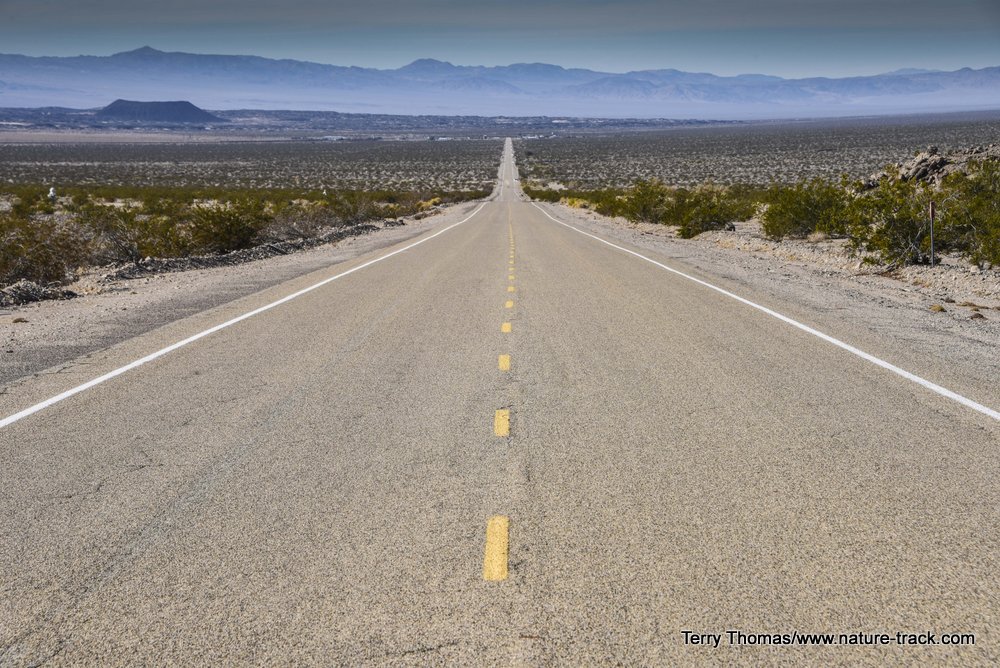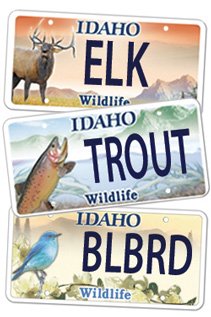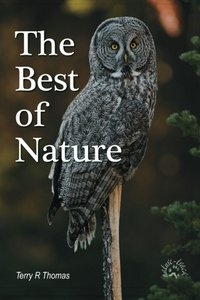Unintended Consequences as the World Goes Quiet Because of Covid-19

Empty roads may have more positive consequences for wildlife than just saving gas and reducing pollution.
As humpback whale mothers trailing newborn calves enter the waters of Alaska’s Inside Passage this spring, they will encounter something the mother whale may have never experienced there—unimpeded ocean sounds. As a direct result of the Covid-19 pandemic, the world’s fleet of about 350 cruise ships have been docked, and the rumble of their propellers, which can be heard and felt by the whales for many miles, has been silenced. Now the sounds of the oceans, including the calls of other whales can be easily heard.
In China, the first country crippled by the pandemic, deaths are high, but air pollution, especially nitrogen dioxide levels, is decreasing dramatically as government mandated shutdowns are enforced. Some estimates suggest that air pollution annually kills more Chinese than Covid-19 has so far. Recently, all mega-cities worldwide are reporting similar reductions in pollution.
Italy, until recently the second hardest hit country, is also seeing a significant reduction in air pollution as quarantine lockdown stills activity. The waters of the canals of Venice, for the first time since World War II, are clear again as sediments normally stirred up by boat traffic settle to the bottom.
The very Earth itself is responding to an almost worldwide quarantine requiring citizens to restrict movements. As equipment, vehicles and factory activity slow or stop, seismologists around the globe are detecting a measurable decrease in seismic activity. Our collective commotion is that pervasive.
It isn’t hard to imagine other scenarios where nature will benefit from the reduced activities of Earth’s dominant species, mankind. On a beach in Brazil, hatching endangered hawksbill turtles were able to make their short trek to the ocean without the usual mass of beachgoers to impede them. On turtle nesting beaches in the USA where artificial lighting from beachfront hotels has confounded hatchlings for years, this season may offer the little ones a break as lights are out for a while.
As traffic pressure declines on highways and interstates, returning birds will find that they can once again easily hear potential mates sing, a predator’s approach and prey sneaking around. This could be a great year for them. If traffic levels stay depressed, lots of temporary new nesting territory close to roads may open up.
And what will the elk and moose and pine martens and bears in Grand Teton and Yellowstone national parks think when hordes of humans, intent on enjoying nature, don’t descend upon them with a smothering influence? Will it improve reproductive success in some way?
Even zoo animals are feeling relief. In Hong Kong’s zoo, giant pandas Ling Ling and Le Le, finally, after 10 years of unsuccessful attempts, naturally mated last week after human visitors were turned away starting the first week of March.
These are all linear-type events where action and reaction are easily connected. There could be significant non-linear consequences as well, things that are much harder to measure because the connection isn’t obvious.
With lots of luck, we will defeat Covid-19 within a month or so and our lives will begin to rebuild. However, it may take us awhile to get back on our feet and for the economy to shake off the wolves biting its flanks. The ramp-up back to normal activity may be slow and unsteady. Will nature benefit from our distraction? Will scientists be able to measure a change like they can with the seismic activity?
What will it all have meant to nature, this opportunity to catch its collective breath, while we are sidetracked in the battle of the century? Will the law of unintended consequences, normally considered negative, have a positive side?
All of these consequences are not worth, in my opinion, the cost humanity is paying to fight for our existence on this planet. It does demonstrate though that our impacts are so huge that when we stop, the resulting quiet is measurable.
Help Idaho Wildlife
When we traveled across the state in October 2017, we visited most of the Idaho Department of Fish and Game wildlife management areas. Most of the vehicles we saw using the wildlife management areas did not have wildlife plates. Buying wildlife plates is a great way for non-hunters and hunters alike to support wildlife-based recreation like birding.
C'mon folks, let's help Idaho's wildlife by proudly buying and displaying a wildlife license plate on each of our vehicles!
See below for information on Idaho plates. Most states have wildlife plates so if you live outside Idaho, check with your state's wildlife department or vehicle licensing division for availability of state wildlife plates where you live.
And tell them that you heard about it from Nature-track.com!

Wildlife License Plates
Great news! as of 2024, there are three NEW designs for license plates. They still are bluebird, cutthroat trout and elk, but they are beautiful.
Idaho Wildlife license plates provide essential funding that benefits the great diversity of native plants and wildlife that are not hunted, fished or trapped—over 10,000 species or 98% of Idaho’s species diversity. Game species that share the same habitats (such as elk, deer, antelope, sage-grouse, salmon, trout) also benefit from these specialty plates.
No state tax dollars are provided for wildlife diversity, conservation education and recreation programs. Neither are any revenues from the sale of hunting or fishing licenses spent on nongame species. Instead, these species depend on direct donations, federal grants, fundraising initiatives—and the Idaho Wildlife license plates.
Both my vehicles have Bluebird Plates. I prefer the bluebird because the nongame program gets 70 percent of the money from bluebird plates, but only 60 percent of the money from elk and trout plates - 10 percent of the money from elk plates supports wildlife disease monitoring and testing programs (to benefit the livestock industry) and 10 percent from cutthroat plates supports non-motorized boat access.
Incidentally, in 2014, the Idaho Legislature denied the Department of Fish and Game the ability to add new plates or even to change the name of the elk and cutthroat plates (very specific) to wildlife and fish plates, a move that would have allowed for changing images occasionally and generating more revenue. It would seem that they believe that we Idahoans don't want a well funded wildlife program.
I think it is time we let the Legislature know that Idahoan support wildlife funding and that we would like to see these generic plates come to fruition.

"WOW. What a phenomenal piece you wrote. You are amazing." Jennifer Jackson
That is embarrassing, but actually a fairly typical response to my nature essays. Since The Best of Nature is created from the very best of 16 years of these nature essays published weekly in the Idaho Falls Post Register (online readership 70,000), it is a fine read. It covers a wide variety of topics including humorous glimpses of nature, philosophy, natural history, and conservation. Readers praise the style, breadth of subject matter and my ability to communicate complex and emotional topics in a relaxed and understandable manner.
Everyone can find something to love in this book. From teenagers to octogenarians, from the coffee shop to the school room, these nature essays are widely read and enjoyed.
Some of the essays here are my personal favorites, others seemed to strike a chord with readers. Most have an important message or lesson that will resonate with you. They are written with a goal to simultaneously entertain and educate about the wonderful workings of nature. Some will make you laugh out loud and others will bring a tear to the eye and warm your heart.
Readers Write:
"You hit a home run with your article on, Big Questions in Nature. It should be required reading for everyone who has lost touch with nature...great job!" Joe Chapman
"We enjoyed your column, Bloom Where Planted. Some of the best writing yet. The Post Register is fortunate to have your weekly columns." Lou Griffin.
To read more and to order a copy, click here or get the Kindle version
Copies are also available at:
Post Register
Island Park Builders Supply (upstairs)
Barnes and Noble in Idaho Falls
Harriman State Park, Island Park
Museum of Idaho
Valley Books, Jackson Wyoming
Avocet Corner Bookstore, Bear River National Wildlife Refuge, Brigham City, Utah
Craters of the Moon National Monument Bookstore, Arco, Idaho
Wildlife License Plates
Great news! as of 2024, there are three NEW designs for license plates. They still are bluebird, cutthroat trout and elk, but they are beautiful.
Idaho Wildlife license plates provide essential funding that benefits the great diversity of native plants and wildlife that are not hunted, fished or trapped—over 10,000 species or 98% of Idaho’s species diversity. Game species that share the same habitats (such as elk, deer, antelope, sage-grouse, salmon, trout) also benefit from these specialty plates.
No state tax dollars are provided for wildlife diversity, conservation education and recreation programs. Neither are any revenues from the sale of hunting or fishing licenses spent on nongame species. Instead, these species depend on direct donations, federal grants, fundraising initiatives—and the Idaho Wildlife license plates.
Both my vehicles have Bluebird Plates. I prefer the bluebird because the nongame program gets 70 percent of the money from bluebird plates, but only 60 percent of the money from elk and trout plates - 10 percent of the money from elk plates supports wildlife disease monitoring and testing programs (to benefit the livestock industry) and 10 percent from cutthroat plates supports non-motorized boat access.
Incidentally, in 2014, the Idaho Legislature denied the Department of Fish and Game the ability to add new plates or even to change the name of the elk and cutthroat plates (very specific) to wildlife and fish plates, a move that would have allowed for changing images occasionally and generating more revenue. It would seem that they believe that we Idahoans don't want a well funded wildlife program.
I think it is time we let the Legislature know that Idahoan support wildlife funding and that we would like to see these generic plates come to fruition.